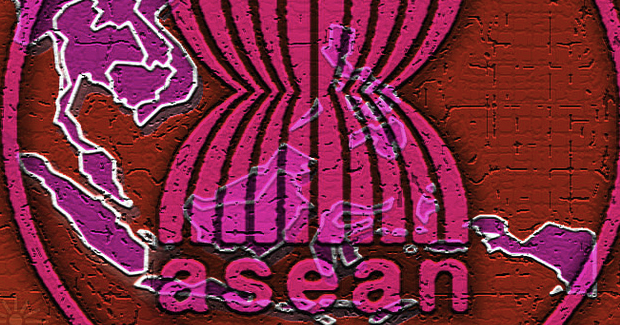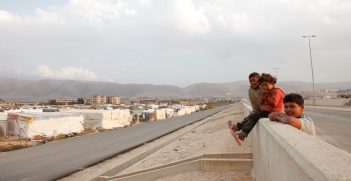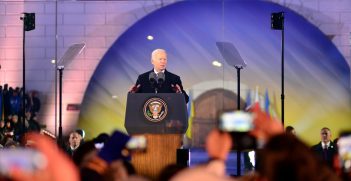Praise for the ASEAN Way

ASEAN has had a rough time of late. It has faced criticism over its approach to China in the South China Sea and may potentially encounter difficulties with the next US president. However, its economic achievements have been remarkable and it has managed to avoid the mistakes of other groupings such as the European Union. The ASEAN approach to international relations should not be written off.
Memorably, former Prime Minister Tony Abbott undertook to “shirtfront” Vladimir Putin over the Russian President’s support for Ukrainian rebels’ downing of a Malaysian airliner. He didn’t.
In a similar vein, Rodrigo Duterte, president of the Philippines, promised to mount his jet ski and head out to plant his country’s flag on islands in the South China Sea disputed with Beijing. He hasn’t.
Like Abbott, Duterte opted for the calmer course of diplomacy. That diplomacy, initiated at the recent ASEAN leaders’ meeting in Vientiane, remains a work in progress, leading some commentators to conclude the 10-nation Association of Southeast Asian Nations is a busted flush.
Using more moderate language, Rowan Callick, The Australian’s experienced Beijing correspondent, wrote that in ignoring the ruling of the Permanent Court of Arbitration that China had breached the United Nations Convention on the Law of the Sea, ASEAN had damaged its own credibility.
Dr John Blaxland, a defence expert at the Australia National University, was equally critical, saying it was a palpable indicator of the powerlessness of ASEAN.
Maybe, but ASEAN should not be written off. Almost 50 years old, it comprises a mixed bag of countries of different sizes, religions, languages and ethnicities: Indonesia is by far the largest by population, Malaysia, competitive Singapore, the oil-rich kingdom of Brunei, the two communist countries Vietnam and Laos, Cambodia, Myanmar, the Philippines and Thailand.
The first ASEAN was a construct of a very different world to that of today, created when Southeast Asia was poor. Its economic achievements have been, and still are, remarkable. It also has managed to avoid the mistakes made by other groupings. It is spared the shambles of the BRICS (Brazil, Russia, India, China, South Africa). It has not embraced the pervasive bureaucracy of the European Union, with its divisive corset of the Eurozone.
But, like Australia, it has problems with an increasingly muscular China. Like Australia, it enjoys the benefits of a strong economic relationship with China, but is fearful of falling foul of its rulers.
This explains ASEAN caution, and its engagement with Beijing in talks aimed at creating a set of rules to avoid armed conflict in the South China Sea. Both sides have committed to agree a code of conduct by mid-2017. A China-ASEAN hotline would be part of this.
Critics see this as ASEAN appeasement. To the Wall Street Journal, it allows China to further a policy of “talk and take“.
That may be so, but ASEAN has little choice but to settle for diplomacy. It cannot send a gunboat to the Spratlys. Its combined military force—even if it was or could be combined—pales in comparison with that available to the commander-in-chief of the Chinese Peoples’ Republic, Xi Jinping.
And those ASEAN leaders that hoped the United States’ so-called “pivot” to Asia would solve this problem are increasingly apprehensive—because of the unfolding political landscape in Washington.
They cannot rely on the comforting words of retired US diplomats, like the former Under-Secretary of State for Asia-Pacific, Kurt Campbell, who was an early salesman of the pivot.
Instead, ASEAN is faced with either a president Trump or Clinton, in just four months from now. In neither case, is this prospect appealing.
If Trump is to be believed, he has little interest in defending anyone other than the United States of America. He is not much interested in alliances. He says he’s not prepared to engage in a war he cannot win.
But one war Trump is keen to wage—with China and much of the rest of Asia—is a trade conflict. Free trade, he argues, has cost American jobs, with all those imports from across the Pacific. While China bears the brunt of most of his rhetoric, ASEAN countries know they would be in the firing line too.
An administration led by Hillary Clinton might seem saner, but her backsliding from previously well-enunciated and established positions is also a big concern for ASEAN leaders. Clinton, as President Barack Obama’s first secretary of state, proclaimed the pivot.
She championed its economic arm, the Trans-Pacific Partnership (TPP). The TPP is a deep-seated complex trade and political treaty, covering 40 per cent of the world’s economy. It was signed in Auckland in February this year by 12 Pacific Rim nations, including four members of ASEAN.
However, the TPP has not been ratified by the US Congress, and now that Clinton has turned against it, it is dead in the ocean.
So, given Beijing’s flexing of Chinese muscles and the parlous state of American politics, it is not surprising that ASEAN is faltering in the world of geopolitics. That does not mean it has lost its way.
As Peter Drysdale has pointed out, ASEAN was never intended as a military organisation and is not one now. The disputes in the South China Sea are an unwelcome distraction, but ASEAN should really be measured by its ability to advance economic growth and integration. Here, it continues to perform well.
Growth rates in its member countries average two or three times that of the European Union. Four member countries have growth rates ahead of China’s, and the 633 million people that form the ASEAN economy outperform and outcompete their rivals in the United States and the European Union on almost every measure.
The differences between ASEAN countries provide immense challenges but the organisation continues with the philosophy it calls the ASEAN Way—trying to advance its cause and reconcile its differences through calm discussion. Long may it continue.
Colin Chapman is a writer, broadcaster and public speaker who specialises in geopolitics, international economics, and global media issues. He is also the immediate past president of the AIIA in NSW.
This article is published under a Creative Commons Licence and may be republished with attribution.





